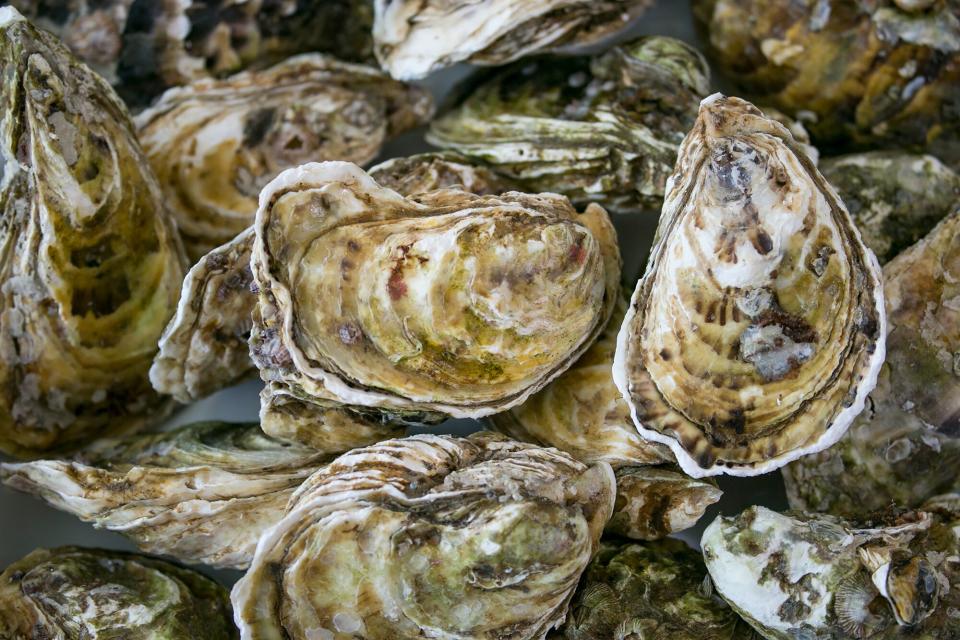Oyster Farmers Are Slipping Notes into Shells to Catch Thieves
Several years ago, thieves targeted oyster farmer Christophe Guinot, stealing more than 6,000 pounds of the shellfish that he raised in Port-Leucate, on France's Mediterranean coast.
Instead of putting the police on notice, installing a new security system, or implanting high-tech tracers in the oyster beds, Guinot decided to try an analog solution first: he typed up several notes and glued them inside empty oyster shells, writing that whoever found that scrap of paper had just won themselves "their own weight in oysters." The note-finder is also given a phone number to call in order to collect the non-existent prize.

Getty Images
"It has had a dissuasive effect," Guinot told Reuters, adding that he hasn't had any oyster thefts since he started putting the notes in empty shells in 2016. Reuters adds that if anyone calls the prize number, they're asked where they bought the "winning" oysters. If they were purchased from a vendor that Guinot doesn't distribute to, the not-so-lucky-anymore winner is informed that they've bought stolen oysters and the cops are notified to try to track the thieves.
Several other oyster farmers have adopted Guinot's idea, and oyster thefts in the Languedoc region have plummeted in the past three years. That is not the case elsewhere in the country: RFI reports that three tons of oysters worth around €20,000 ($22,590) were stolen from a farm in Charente-Maritime region last fall.
Although the fake "your weight in oysters" prize notes seem to have worked for Guinot, other oyster farmers have tried more tech-savvy solutions to stop shellfish-focused criminals. In 2014, the Gillardeau family invested over €4 million in lasers so it could laser-engrave its oyster shell in an attempt to deter counterfeiters.
This isn't Guinot's first oyster-related innovation. Over a decade ago, he started cultivating heart-shaped oysters that restaurants could buy to serve on Valentine's Day. He got the idea after his wife gave him a heart-shaped oyster that she'd found and he decided to, well, find a way to share the love. (And, of course, his shell-shaping process is a closely guarded secret).
"I sell them for the same price as the others even though they are three times more work," he told The Local in 2017. "I don't do it for the money. It's the continuation of a beautiful romance. I love to think that the people who order them have the same emotion as I did when my wife gave me that heart-shaped oyster."
Maybe if he started sealing love notes inside those heart-shaped oysters, he'd really be onto something.

